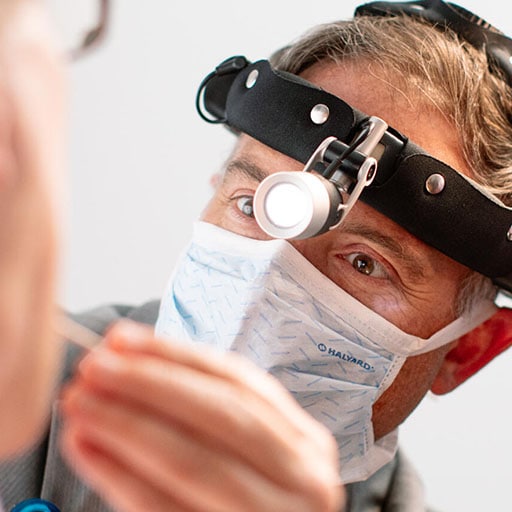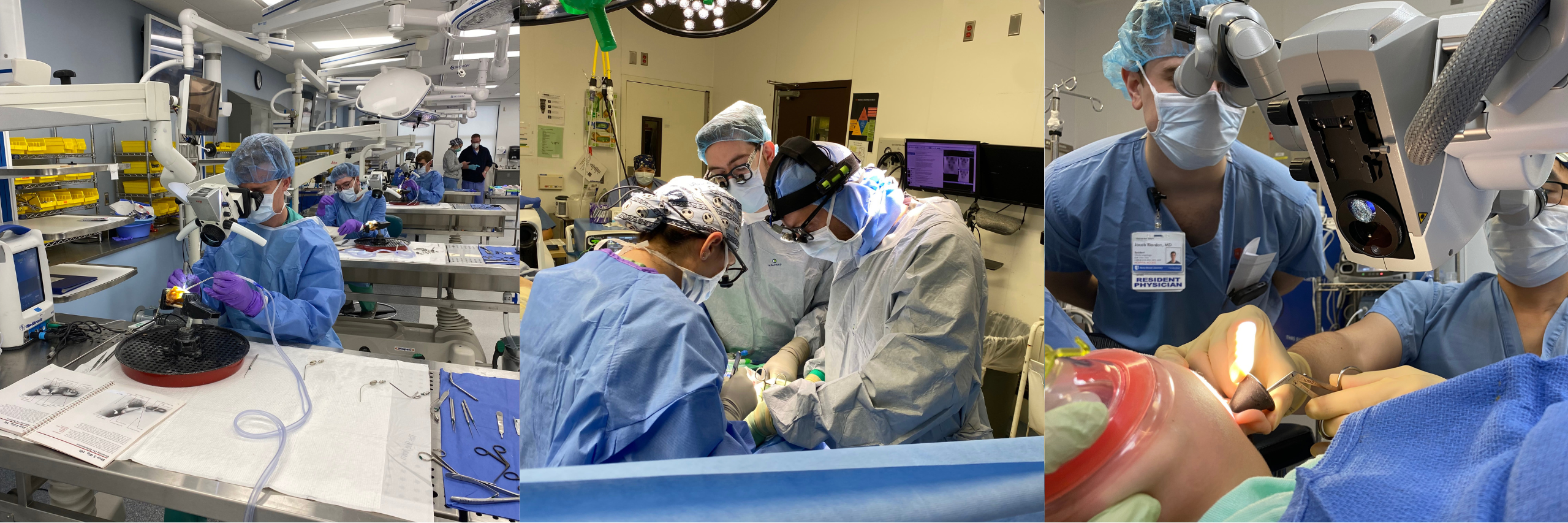How to Know You Need an ENT Clinic for Recurring Symptoms
Checking out the Field of Otolaryngology: What to Expect When You Speak With an ENT
Otolaryngology, typically referred to as ENT, incorporates the medical diagnosis and therapy of nose, throat, and ear conditions. For those experiencing related issues, speaking with an ENT expert can provide clarity and alleviation. Recognizing what to expect during such appointments is necessary for effective communication and treatment. This introduction will detail crucial elements of the ENT experience, consisting of usual reasons for brows through and the processes associated with medical diagnosis and therapy.

Understanding Otolaryngology: An Introduction
Otolaryngology, commonly referred to as ENT (Ear, Nose, and Throat) medicine, is a specific branch of medicine that focuses on the medical diagnosis and therapy of conditions impacting these important areas of the human body. This area encompasses a vast array of problems, including those pertaining to hearing, balance, breathing function, and speech. Otolaryngologists are educated to handle both medical and medical therapies, making use of innovative strategies and modern technologies. Their competence extends past standard ailments, dealing with concerns such as allergies, sinus infections, and hearing loss. In addition, they play a crucial role in the management of head and neck cancers cells, providing detailed treatment customized to individual patient needs. Overall, otolaryngology continues to be vital for maintaining wellness and lifestyle in afflicted individuals.
Typical Factors to See an ENT Specialist
Numerous individuals look for the know-how of an ENT expert for a range of reasons, mirroring the diverse nature of problems that impact the ear, nose, and throat. Common concerns include persistent sinus problems, which commonly brings about consistent nasal congestion and facial discomfort. Allergic reactions and their linked signs, such as itching and sneezing, additionally trigger check outs to these experts (Voice). Hearing loss, whether abrupt or progressive, is one more significant reason for appointment. Additionally, individuals may look for examination for throat conditions, including relentless hoarseness or ingesting problems. Sleep apnea, characterized by cut off breathing during sleep, is regularly resolved by ENT experts too. Each of these conditions highlights the significance of specialized treatment in taking care of intricate ENT-related health issues
Planning for Your ENT Appointment
When getting ready for an ENT visit, it is essential to gather appropriate information and consider any particular issues. People must assemble a detailed case history, including previous ear, nose, or throat problems, surgeries, and current medications. Recording signs and symptoms-- such as intensity, duration, and frequency-- can provide important understandings for the ENT expert. Additionally, individuals must prepare a listing of questions they want to ask, ensuring that all worries are addressed during the check out. Bringing along any kind of pertinent medical records or test outcomes can better aid the ENT in understanding the patient's problem. People need to confirm their appointment information, including day, time, and place, to minimize any last-minute confusion. Proper preparation can improve the effectiveness of the examination and cause better end results.
What to Anticipate Throughout the Consultation
As the examination starts, the person can expect to participate in a comprehensive conversation with the ENT specialist regarding their signs and symptoms and medical history. The expert will inquire regarding the period, frequency, and seriousness of symptoms such as hearing loss, nasal congestion, or sore throat. Furthermore, the patient's previous clinical problems, drugs, and any kind of pertinent household history will be examined, aiding the professional in creating a total understanding of the client's health. The ENT may likewise ask about way of living factors, such as exposure to irritants or allergens. This open dialogue develops a structure for the appointment, guaranteeing best way to drain sinuses that the individual's worries are resolved and setting the phase for any type of essential assessments or recommendations for therapy.
Diagnostic Tests and Procedures in Otolaryngology
A series of diagnostic tests and procedures are vital in otolaryngology to properly review and identify problems influencing the ear, nose, and throat. Typical tests include audiometry, which determines hearing function, and tympanometry, assessing middle ear stress. Nasal endoscopy permits visualization of the nasal flows and sinuses, while laryngoscopy checks out the throat and vocal cords. Imaging methods, such as CT scans and MRIs, give comprehensive views of head and neck structures. Allergy testing might likewise be performed to identify triggers for sinus or respiratory system concerns. These analysis tools allow ENT experts to establish an extensive understanding of individuals' conditions, making certain customized and reliable administration strategies. Proper diagnosis is essential for effective treatment results in otolaryngology.
Therapy Alternatives Used by ENT Specialists
ENT professionals provide a selection of therapy choices tailored to attend to certain problems influencing the nose, ear, and throat. These treatments range from conventional techniques, such as medication and lifestyle modifications, to even more invasive treatments. As an example, allergies may be taken care of with antihistamines or immunotherapy, while chronic sinus problems could require nasal corticosteroids or sinus surgical treatment. For hearing loss, ENT professionals commonly suggest hearing help or surgical treatments like cochlear implants. In instances of throat conditions, options can consist of speech therapy or operations to get rid of obstructions. Furthermore, they may offer advice for taking care of rest apnea, including using CPAP tools or surgical treatments. In general, the goal is to enhance patients' lifestyle with individualized care and reliable treatment methods.
When to Look For Follow-Up Treatment With an ENT
When to seek follow-up treatment with an ENT professional is crucial for handling continuous signs and symptoms or problems connected to throat, ear, and nose conditions, recognizing. Individuals should consider arranging a follow-up visit if signs persist in spite of preliminary therapy, such as chronic ear discomfort, nasal congestion, or throat discomfort. Changes in hearing, balance concerns, or uncommon nasal invisible hearing aids discharge may likewise require further analysis. Furthermore, if an individual experiences adverse effects from prescribed medications or has actually undergone a surgery, follow-up treatment is essential to keep track of recovery and attend to any kind of worries. Prompt appointments can guarantee efficient administration of conditions, prevent potential complications, and offer satisfaction pertaining to one's health and wellness. Seeking follow-up treatment advertises positive health and wellness management in otolaryngology.
Regularly Asked Inquiries

What Credentials Should I Try to find in an ENT Specialist?
When seeking an ENT specialist, one ought to try to find board accreditation, pertinent experience, and strong patient reviews. Additionally, efficient interaction abilities and a caring strategy can substantially boost the overall treatment experience.
Exactly how Do I Pick the Right ENT for My Requirements?
Choosing the ideal ENT specialist includes examining their credentials, experience, and client testimonials (ENT surgery). It is important to contemplate their communication design and approach to treatment, guaranteeing they line up with the individual's details health and wellness demands and preferences
Are There Any Dangers Linked With ENT Procedures?
The risks related to ENT procedures may include infection, bleeding, anesthesia complications, and potential her explanation damages to bordering structures. Clients ought to go over these threats with their physician to recognize individual worries and assurance informed choices.
How Can I Manage Anxiousness Before My ENT Appointment?
To take care of stress and anxiety before a consultation, people can exercise deep breathing workouts, visualize favorable results, prepare concerns ahead of time, and seek assistance from good friends or household, cultivating a feeling of confidence and peace.
What Should I Do if I Experience Side Effects From Treatment?
The person should without delay report them to their healthcare company if side effects from treatment take place. Changes to treatment or extra treatments may be essential to ensure safety and security and effectiveness in managing their condition - Voice. As the assessment starts, the client can expect to involve in a detailed discussion with the ENT specialist concerning their signs and symptoms and clinical background. These diagnostic devices enable ENT experts to develop a detailed understanding of clients' problems, ensuring tailored and effective administration plans. ENT specialists use a variety of therapy options tailored to deal with specific conditions influencing the nose, ear, and throat. When looking for an ENT specialist, one need to look for board certification, relevant experience, and strong patient reviews. Picking the right ENT expert entails evaluating their qualifications, experience, and patient testimonials